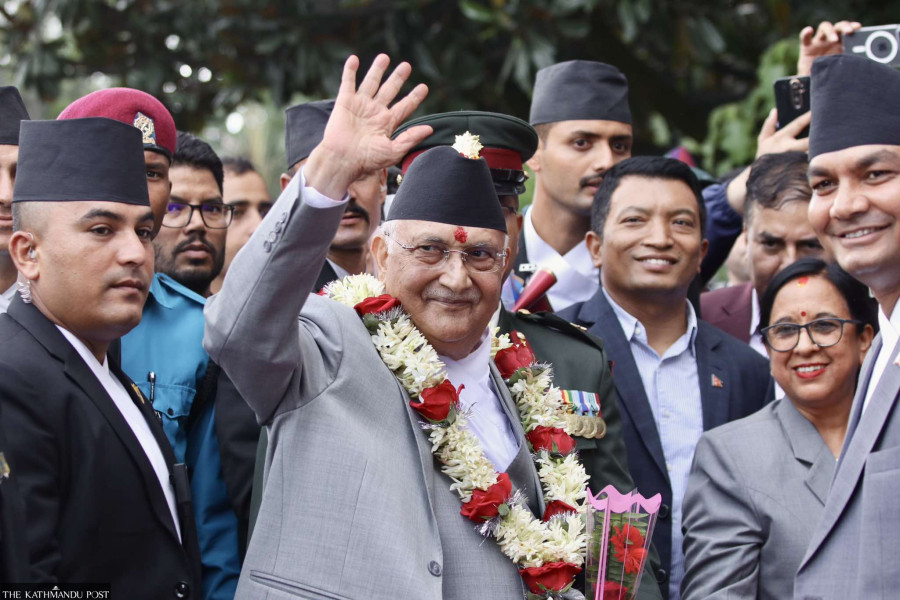Editorial
Mixed signals
Prime Minister Oli has given out both positive and negative vibes in his first few days in office.
After the formation of the federal Cabinet on Monday, Prime Minister KP Sharma Oli has been criticised for not being inclusive while constituting the team of the country’s highest executive. In his 22-member Council of Ministers, Oli picked only two women while he didn’t choose a single Dalit member. There are a few things for which even those from developed countries praise Nepal and in which we Nepalis can take great pride. The inclusive constitution of Nepal promulgated in 2015 and the laws formulated in line with the charter are quite progressive. Dalits, women and other oppressed communities fought long for their representation. But it was after the success of the people’s movement in 2006 that the enforcement of inclusive policy in state agencies started to be strengthened. And the constitution formally institutionalised the achievements of the political and other movements.
Unfortunately, the spirit is gradually dying. It’s not only Oli who has ignored the call for inclusivity in his Cabinet. The same trend had been in evidence in the past. The immediate past prime minister and CPN (Maoist Centre) chair Pushpa Kamal Dahal, who often boasts of introducing an inclusive system in the country, didn’t appoint a single minister from the Dalit community in his last Cabinet. This is a serious concern. Having a progressive constitution and laws doesn’t mean much if the leaders in the driving seats of the executive agencies trample on its spirit. If there is a community that is most discriminated against, it is the Dalits and they therefore deserve priority for representation under an inclusive system. Worryingly, leaders not only disregard the constitutional spirit but don’t follow even minimum criteria while picking ministers, lawmakers or other officials for important posts. Aspirants for ministerial berths rather often resort to various shenanigans to impress top leaders, promoting unhealthy practices in politics. We urge the prime minister to try to correct this egregious mistake in the days ahead.
The new prime minister has also stood out for something positive though. He was quick to form a full-fledged Cabinet. In the past, prime ministers would initially appoint a few ministers and take weeks, if not months, to give the Cabinet a full shape. The factional feuds within the prime minister’s party for ministerial berths and bickering between coalition partners over power sharing would frustrate the public. The heads of the government would oversee a dozen ministries, hampering the government’s functioning. Prime Minister Oli’s appointment of all his team members on the day of swearing-in means the government can function in a full-fledged way from day one. Also, in his first Cabinet meeting on Monday, Oli gave ministers specific deadlines to accomplish given tasks. Unlike in the previous Cabinets, Oli has also chosen more experienced ministers in his team.
Prime Minister Oli and Nepali Congress President Sher Bahadur Deuba are among the senior-most leaders who have been in power on and off since the restoration of democracy in 1990. Deuba was home minister in the first post-1990 government and Oli succeeded Deuba in 1994. They know how things work at Singhadurbar. The Congress and UML leaders have given various rationales for the coming together of the two largest parties in the federal parliament. If they can make a mark in governance and service delivery, they would have gone a long way towards fulfilling their promises.




 18.12°C Kathmandu
18.12°C Kathmandu














